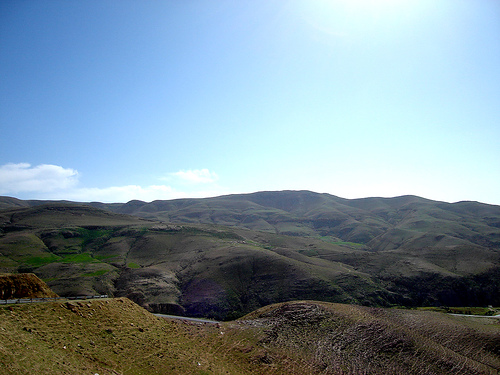 You’re eating a bag of chips while walking down the street. As you finish you look around to find a trash can but nothing is in sight.
You’re eating a bag of chips while walking down the street. As you finish you look around to find a trash can but nothing is in sight.
Do you drop it? If the city doesn’t bother to make waste bins available, why should you care about the city’s cleanliness? How about eating a piece of steak? Is it irresponsible to eat knowing the vast amounts of carbon created in order to bring it to your plate?
What if your livelihood, and the livelihood of your five hundred employees, depends upon your factory, but the only way to make the books work is if you dump your waste into the river? Does that make that act of destruction okay?
Thomas Hobbes, the father of modern political philosophy, expresses the idea – in a nutshell – that the very fact that we are human gives each of us the right to do whatever we want. Although we each need to give up some of our individual rights to the government, so that the government can make sure that everyone has equal rights. This is a significant issue when dealing with environmental issues.
For example, the government of Brazil needs to make sure that its economic system can support its citizens; on the other hand the rainforest, to a large extent, supports our atmosphere. Does Brazil have the right to keep its logging industry, which is destroying the rainforest, even though it might lead to the destruction of the planet?
What if without the logging industry, without international intervention, Brazil’s economy would implode? Can those two considerations honestly be juxtaposed against each other?
This week’s Torah portion presents a solution to this question.
After the war with Moab the tribes of Reuven and Gad approach Moses. They have fallen in love with the pastures that they have just conquered and they ask for permission to stay. In the end they are granted their request, but with two conditions:
- They must go into the land of Israel along with the rest of the Israelites to conquer the land.
- They cannot separate themselves from the rest of the people, and stay on the other side of the Jordan River alone. Half the tribe of Menashe must join them.
The purpose of the first condition is similar to Hobbes’ idea of society. They are being asked to contribute to society to make sure that society can continue. This way the rest of the nation will be able to settle down as well.
The second condition is set to make sure that the people of Israel stay together as one. If the tribe of Menashe is split in two it will make sure that there is a flow of communication between both sides of the Jordan River. This way the tribes will not lose contact with the rest of the nation.
These solutions can help us when dealing with difficult environmental issues hinging upon the rights of the individual. One of the biggest problems that arises when dealing with global environmental problems is addressing the rights of the individual vs. the collective rights of mankind.
It seems clear that it is unacceptable to dump waste in a river that affects everyone. But what about Brazil? Can the world demand the halting of the logging industry? Or do we even have a right eat beef, considering the vast amounts of carbon created by the process of bringing it to your neighborhood supermarket?
When dealing with these difficult issues we should take into consideration the two conditions that Moses gave the tribes that wanted to stay on the other side of the Jordan River.
One can compare the first condition in the Parsha–that the tribes must send soldiers into Israel to help with the conquering of the land–with the idea that we are all responsible for the cleanup of our planet and not just for what we do individually.
After all, aren’t we all are floating together in this boat, Planet Earth, in the ocean of the universe? Personal carbon offsetting is a good first step, but we need to take responsibility for much much more. If the authorities are not doing their job yet, we have to make sure that they change.
If you enjoy eating meat, it is not enough to make sure that you offset only the carbon created for the process of bringing your steak to your plate. Brazil should not be responsible for the protection of the rainforest alone. We all need that forest, and just as the two and a half tribes are responsible for helping the rest of the nation to settle down, we need to make sure that Brazil can protect, and even rejuvenate, its rainforest.
The second condition expresses that not only are we all in this boat together but we need to make sure that we are communicating, that we all are working together. We need to coordinate our efforts and keep an open line of communication. With today’s globalization we need to take advantage of the benefits of that process, break down the borders that separate us and start working together to make sure that we will be able to continue living together.
While we each have individual rights, if we do not start taking serious steps we will reach a point where it will be too late and our planet will not be able to support us. Here is one piece of advice from the wisdom of our ancestors, who were dealing with similar issues. Namely: we must stick together to reach a mutual goal while keeping in mind the needs of the individuals.




8 thoughts on “Eco-Rabbi: Parshat Matot – Rights! Individual vs. Community”
Comments are closed.